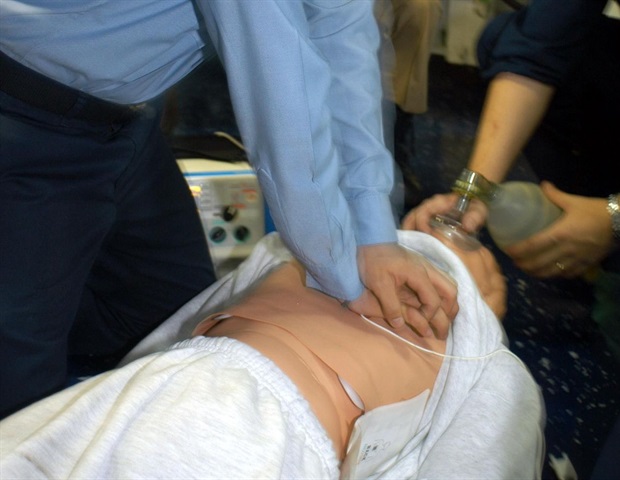Study reveals how an RNA enzyme drives the postnatal switch from glucose to fatty acids in heart cells, highlighting ketogenesis as essential for metabolism.
 Study: The tRNA methyltransferase Mettl1 governs ketogenesis through translational regulation and drives metabolic reprogramming in cardiomyocyte maturation. Image Credit: Silver Place / Shutterstock.com
Study: The tRNA methyltransferase Mettl1 governs ketogenesis through translational regulation and drives metabolic reprogramming in cardiomyocyte maturation. Image Credit: Silver Place / Shutterstock.com
In a recent study published in Nature Cardiovascular Research, researchers investigate the influence of the ribonucleic acid (RNA) modifying enzyme Mettl1 on energy metabolism and the maturation of heart cells after birth.
How is ketogenesis involved in cardiac function?
Heart cells undergo significant changes shortly after birth, transitioning from glucose-based energy metabolism to relying on fatty acid oxidation, a process vital for their maturation. Structural transformations and enhanced oxidative capacity accompany this shift. Although the role of transcription factors and microRNAs in this process has been widely studied, recent evidence suggests that RNA modifications may also regulate gene expression during heart development.
Ketogenesis, which is the process of generating ketone bodies like β-hydroxybutyrate, peaks in neonatal hearts, thus indicating its potential importance in cellular maturation. Furthermore, genetic mutations that impair this developmental process can result in severe cardiac conditions.
Despite these observations, the mechanisms shared between ketogenesis and heart cell maturation remain unclear. Furthermore, the specific roles of RNA-modifying enzymes in these metabolic and structural changes have not been fully explored.
About the study
The present study explored the role of Mettl1, an enzyme responsible for transfer RNA methylation, in postnatal cardiomyocyte maturation.
To this end, genetically modified mice carrying a cardiomyocyte-specific Mettl1 deletion were used to investigate its effects on heart cell development. The in vivo assessment techniques included echocardiography to assess heart function, as well as histological examinations to analyze structural changes such as sarcomere organization and mitochondrial morphology.
Several in vitro experiments using neonatal rat ventricular myocytes with reduced Mettl1 expression were also performed. During these experiments, cells were exposed to fatty acids to simulate the conditions necessary for maturation. Any changes in sarcomere organization, calcium signaling, and the expression of genes related to energy metabolism were recorded.
Advanced molecular techniques, including transcriptomics, ribosome profiling, and metabolomics, were used to identify changes in gene expression and metabolic pathways. Quantification of β-hydroxybutyrate, a ketogenesis product, was performed in both heart tissues and cells to elucidate the role of Mettl1 in ketone production.
Liquid chromatography-mass spectrometry was also used to assess lipid metabolism and post-translational protein modifications. The interventions included supplementation with β-hydroxybutyrate and overexpression of Hmgcs2 to rescue observed defects. These approaches provided insights into how Mettl1-mediated modifications influence translational efficiency and downstream metabolic processes.
Study findings
Mettl1 plays a critical role in heart cell maturation by regulating ketogenesis. More specifically, the researchers observed that loss of Mettl1 activity led to reduced expression of Hmgcs2, which is essential for ketone production, thereby resulting in decreased levels of β-hydroxybutyrate in neonatal mouse hearts. This deficiency impaired the transition from glucose to fatty acid metabolism, which is a distinct feature of mature cardiomyocytes.
Transcriptomic and proteomic analyses revealed that loss of Mettl1 disrupted the translation of genes essential for fatty acid oxidation and oxidative phosphorylation while upregulating glycolysis-related pathways. Moreover, metabolomic profiling confirmed the accumulation of glycolytic intermediates and the reduction in fatty acid oxidation intermediates. Additionally, lipid droplet accumulation and altered triglyceride and cholesterol levels were observed, thus indicating metabolic imbalances.
The in vitro experiments demonstrated that Mettl1-deficient heart cells exhibited shortened sarcomeres, reduced mitochondrial size, and impaired calcium signaling, all of which are immature cardiomyocyte characteristics. However, supplementation with β-hydroxybutyrate or overexpression of Hmgcs2 improved these defects, which restored sarcomere structure, mitochondrial function, and adenosine triphosphate (ATP) levels. These interventions also enhanced fatty acid metabolism, as demonstrated by increased oxygen consumption and reduced lipid accumulation.
Post-translational modifications, such as lysine β-hydroxybutyrylation, were identified as the mechanisms through which ketogenesis supports metabolic enzyme activity. Reduced modifications in enzymes linked to the tricarboxylic acid cycle and fatty acid oxidation were observed in Mettl1-deficient cells.
Conclusions
The activity of the transfer RNA methylating enzyme Mettl1 controls heart cell maturation by driving ketogenesis and metabolic reprogramming. The study findings also demonstrate that Mettl1 is essential for neonatal heart cell maturation through its regulation of ketogenesis and translation of Hmgcs2, which facilitates the metabolic shift from glycolysis to fatty acid oxidation to ensure proper energy production and cellular development.
These observations confirm the importance of RNA modifications in heart function. Thus, targeting Mettl1 or ketogenesis could provide new strategies for treating metabolic and developmental heart disorders.
Journal reference:
- Du, T., Han, Y., Han, H., et al. (2024). The tRNA methyltransferase Mettl1 governs ketogenesis through translational regulation and drives metabolic reprogramming in cardiomyocyte maturation. Nature Cardiovascular Research. doi:10.1038/s44161024005652.

 2 hours ago
1
2 hours ago
1















.png)

.png)
.png)
.png)













 English (US) ·
English (US) ·  Hindi (IN) ·
Hindi (IN) ·